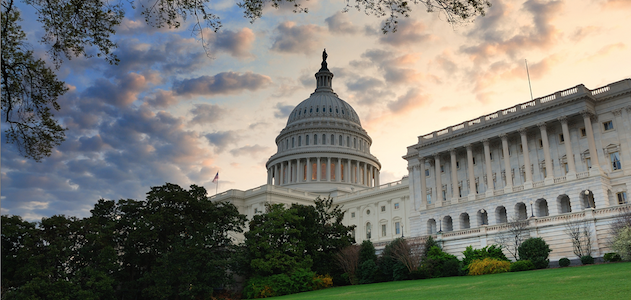Despite receiving full-throated support from President Barack Obama, a bill designed to ease the burden of student loan debt could not garner enough support in the Senate and will not move forward in its current form.
The bill, authored by Senator Elizabeth Warren, D-Mass., would have allowed borrowers to refinance their student loan debt using today’s lower interest rates. According to media reports, the Senate voted 56-38 in favor of advancing the bill, which is four votes short of the 60 the bill needed to advance.
The bill is just the latest in a line of legislation to fall victim to the warring parties in Congress. Republicans accused Warren and the Democrats of playing politics by putting the bill forward, knowing that it had little chance to pass.
"The Senate Democrats' bill isn't really about students at all. It's really all about Senate Democrats," Minority Leader Mitch McConnell, R-Ky, told the Associated Press. "They want an issue to campaign on to save their own hides this November."
The bill would have been paid for by, in the words of President Obama, “closing loopholes that allow some millionaires to pay a lower tax rate than the middle class.”
That legislative measure, sometimes referred to as the Buffett Rule, has long been a Democratic rallying cry and one that Republicans have long pushed back on.
On Monday, President Obama said that his administration fully supported the bill. The proclamation came as part of a speech that saw President Obama announce additional measures to ease the “crush” of student loan debt.
In the speech, President Obama said that he was directing Secretary of Education Arne Duncan to expand the “Pay as You Earn” law, which caps student loan repayments at 10% of monthly income. The new changes are expected to increase the program’s pool of eligible participants by nearly 5 million people, President Obama said.
At one point, the President deviated from his prepared remarks to expand on his thoughts on the importance of Warren’s bill. “You’ve got a pretty straightforward bill here,” the President said. “It’s comes down to lower tax bills for millionaires or lower student loan interest rates. This should be a no-brainer.”
The Congressional Budget Office said that the bill would allow for half of the outstanding loan volume for federal student loans and loan guarantees (about $460 billion) to be refinanced. Young buyers armed with lower DTI ratios can only help the struggling housing market.
According to data from the Federal Reserve Bank of New York, student loan debt rose from $241 billion in 2003 to $1.11 trillion in the first quarter of 2014. “These costs have left the middle class feeling trapped,” President Obama said on Monday. “We believe that no young person should be priced out of a good education.”
The leadership of the Consumer Financial Protection Bureau says that the drastic increase of student loan debt over the last 10 years is keeping first-time homebuyers out of the market.
"According to an analysis by the Federal Reserve Bank of New York, for the first time in at least a decade, households with student loan debt are less likely to have a mortgage than those without student loan debt,” CFPB Director Richard Cordray told attendees at the Boulder Summer Conference on Consumer Financial Decision Making last month.
In October, the student loan ombudsman for the CFPB, Rohit Chopra said, “"The fact is student indebtness impacts the credit profile of first-time homebuyer. Three-fourths of the fall in household formation can be directly correlated to student debt."
Despite all of the mounting data that student loan debt is impacting the future of the economy, only three Republicans, Senators Susan Collins of Maine, Lisa Murkowski of Alaska and Bob Corker of Tennessee, voted for Warren’s bill. All of the Senate’s Democrats voted in favor of the bill.
Senator Corker previously reached across the aisle to co-author bipartisan housing reform legislation, but similar legislation, the Johnson-Crapo bill, did not find adequate support in the Senate either.






